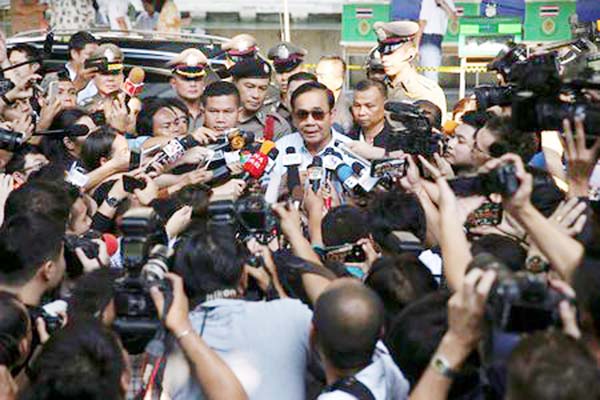
Reuters, Bangkok :
Thai voters flocked to the polls on Sunday in a long-delayed election following a 2014 coup, a race that pits a military junta chief seeking to retain power against a “democratic front” led by the populist party he ousted.
Turnout was expected to be high as 80 percent among the 51.4 million Thais eligible to vote, the Election Commission said about an hour before the polls closed.
Voters are choosing the 500-seat House of Representatives. The lower house of parliament and an upper house Senate, which is appointed entirely by the ruling junta, will select the next government.
Thailand has been under direct military rule since then-army chief Prayuth Chan-ocha overthrew an elected government linked to exiled former Prime Minister Thaksin Shinawatra, who himself was thrown out by the army in 2006.
Critics have said a new, junta-written electoral system gives a built-in advantage to pro-military parties and appears designed to prevent the Thaksin-linked Pheu Thai Party from returning to power.
Pro-Thaksin parties have won every election since 2001, but the past 15 years have seen crippling street protests both by his opponents and supporters that destabilized governments and hamstrung business.
Prayuth is hoping to stay on as prime minister with the backing of a pro-military party that campaigned on maintaining order and upholding traditional values of loyalty and devotion to the monarch.
“I am happy to see citizens come out and exercise their voting rights,” Prayuth told reporters after casting his ballot.
“I want to see love and unity. Everybody has one vote, one voice. Everybody wants democracy.”
On the eve of the vote, King Maha Vajiralongkorn made an unexpected and cryptic statement, recalling a comment made by his late father in 1969 on the need to put “good people” in power and to prevent “bad people from … creating chaos”.
Although he did not refer to any of the sides in the race, the king’s message was a departure from the approach of his late father, who died in 2016. The former king, in his latter years, usually kept a distance between the monarchy and politics
King Vajiralongkorn also weighed in on electoral affairs last month followed a startling turn of events when a pro-Thaksin party nominated Princess Ubolratana, the king’s sister, as its prime ministerial candidate.
The king within hours issued a statement saying her candidacy was “inappropriate” and she was quickly disqualified.

